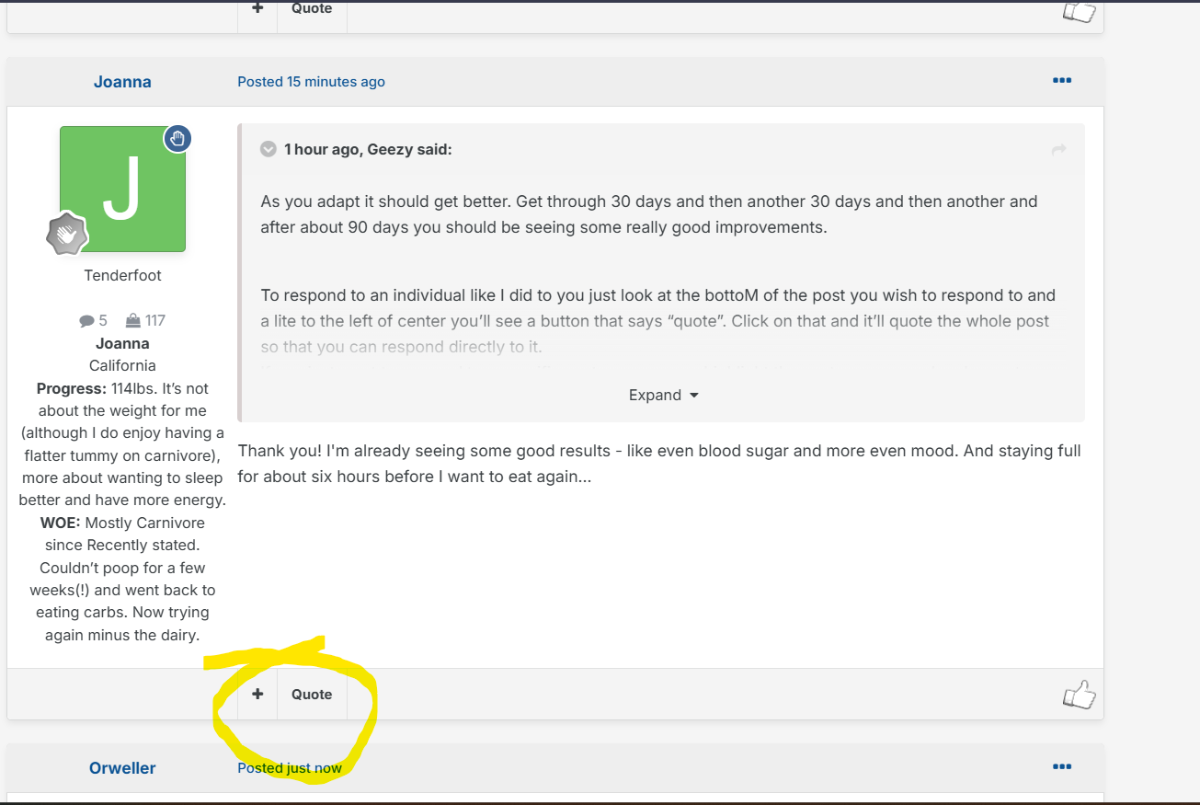Welcome to our Carnivore / Ketovore / Keto Online Community!
Welcome to Carnivore Talk! An online community of people who have discovered the benefits of an carnviore-centric ketogenic diet with the goal of losing weight, optimizing their health, and supporting and encouraging one another. We warmly welcome you! [Read More]
- Replies 3
- Views 883
- Created
- Last Reply
Popular Days
Most Popular Posts
-
Figures, just like every thing else nutrition science...a shot in the dark, but don't you dare question it or else be cast into the bucket of deplorable radicalized morons.
-
Interesting read. Not being a computer guy I have no idea why this is being underlined as I type. I'm at that point that the weight is still falling off so I can only imagine I am in a calo
-
Nice article. I always figured "2000 calories a day" was just a number that made the math simple, in order to establish a standard.








I’ve wondered for quite some time now who decided how many calories we should eat for the optimal requirements.
Now I’m not a CICO kinda guy and that’s what got me to questioning this calorie thing.
I heard some time ago that the RDA values that are pushed on us as what we should be getting every day for optimal health and the calorie numbers were just arbitrary numbers picked by surveys given to college students.
I really started wondering when I hit my final weight and wondered if I needed to eat more to keep from losing anymore. So I did some tracking and found that my average calorie count is about 1500 per day, give or take. I feel fine but the everyone was saying that that is starvation mode. Well how can it be starvation when I feel great? I wish I could remember the podcast but I remember hearing that the average person back before the advent of processed foods generally ate a diet of about 1500 calories. As agricultural ramped up and food became more plentiful the calorie count went up and so did the expectations of how much to eat.
I’m a firm believer that it’s not how many calories we consume but what food those measures of heat are made of. 2000 calories from donuts will have a remarkably different effect on your body than 2000 calories from ribeye.
So anyways, I found this article that confirms what I suspected about how the numbers came to be the acceptable norm for caloric intake.
https://stvincents.org/about-us/news-press/news-detail?articleId=45556&publicid=745#:~:text=The%202%2C000%2Dcalorie%20diet%20was,benchmark%20number%20for%20daily%20calories
Sent from my iPhone using Tapatalk